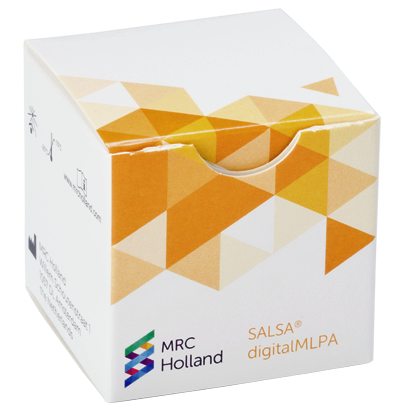P090 BRCA2

SALSA MLPA Probemix P090 BRCA2 detects copy number variations in the BRCA2 gene.

Contents: 50 MLPA probes, including 38 probes for BRCA2, including 1 probe detecting the wild-type sequence of the c.156_157insAlu mutation.

Tissue: genomic DNA isolated from human peripheral whole blood.

Application: hereditary breast and ovarian cancer syndrome (HBOC syndrome).

IVDR certified and registered for in vitro diagnostic (IVD) use in selected territories.

Copy number variations of BRCA2 identified with P090 BRCA2 can be confirmed with P077 BRCA2 Confirmation.

